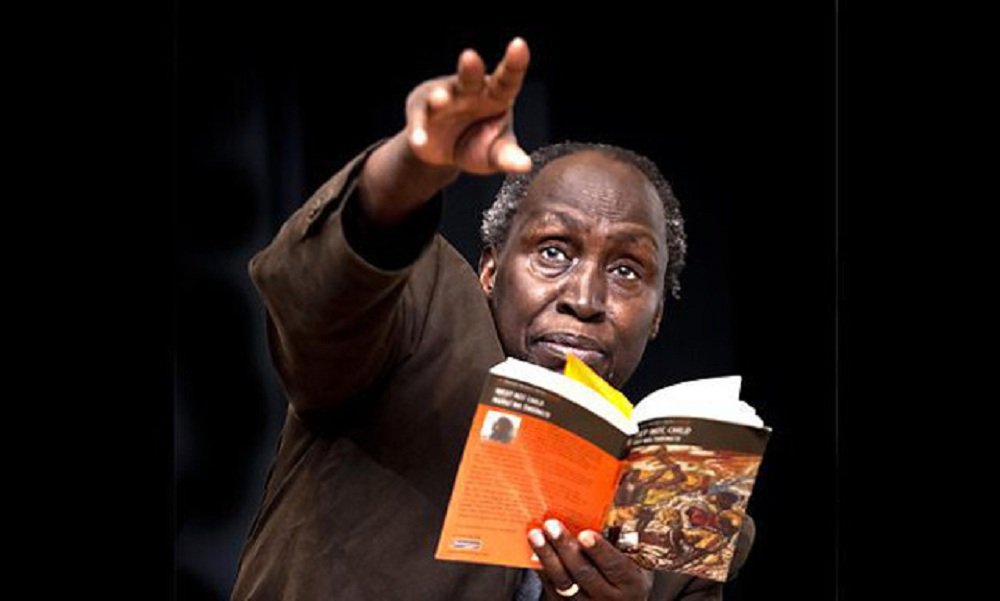
“Africa Has Been Orphaned” » Capital News
NAIROBI, Kenya May 29 – Former Deputy President Rigathi Gachagua has paid an emotional tribute to literary giant Prof. Ngũgĩ wa Thiong’o, calling his death a monumental loss to Africa and generations of literary scholars.
Gachagua described the celebrated author and intellectual as “a mentor, teacher, prolific writer, poet, honest man, and great political animal,” whose passing had “orphaned Africa.”
“Prof. Ngũgĩ was one in many,” he said in a statement, joining a chorus of tributes pouring in from across the globe. “We, the students of literature, have borne it all.”
Ngũgĩ died on Wednesday night, in the United States after a long illness. He was 87. His daughter, Wanjiku wa Ngugi, confirmed the news on a Facebook post, saying her father “lived a full life and fought a good fight.”
Gachagua reflected on the profound impact Ngũgĩ’s writing had on both his personal and political life, praising the writer’s mastery of language and deep symbolism.
“If a literary genius ever lived who has inspired my world of literary language and communication—be it through symbolism, figurative language, metaphors, metonymy or poetry—that genius is Prof. Ngũgĩ wa Thiong’o,” he wrote.
He lauded Ngũgĩ’s lifelong commitment to telling African stories from an African perspective, celebrating his fearless embrace of native languages in literature.
“The African literary champion never shied from writing in his native language. This inspiration lives on through works like Matigari, Ngahika Ndeenda, and Caitaani Mutharaba-Inĩ, true to African heroism,” Gachagua said.
Among his favourite reads, he mentioned Petals of Blood, Maitu Njugira, Mũrogi wa Kagogo, and Caitani Mutharaba-Ini, books he said helped shape his worldview.
Gachagua also revealed that after leaving office in 2024, he found himself returning to one of Ngũgĩ’s seminal works, A Grain of Wheat, drawing strength and insight from the line:
“Then nobody noticed it; but looking back, we can see that Waiyaki’s blood contained within it a seed, a grain, which gave birth to a movement.”
“His inspiration to me went beyond the classroom into my political world,” he added.
Born James Ngugi on 5 January 1938, Ngũgĩ wa Thiong’o was a trailblazing author, playwright, essayist and academic whose influence on African literature and political thought is immeasurable. Though he began his career writing in English, he later embraced his native Gikuyu language, becoming a pioneering voice for linguistic decolonisation.
He founded and edited the Gikuyu-language journal Mũtĩiri, and his short story The Upright Revolution: Or Why Humans Walk Upright has been translated into over 100 languages.
In 1977, his radical approach to community theatre, exemplified by the play Ngaahika Ndeenda (co-written with Ngũgĩ wa Mĩriĩ), was met with state repression. The Kenyan regime shut down the production and imprisoned him for over a year. During his incarceration, Ngũgĩ famously wrote Devil on the Cross on toilet paper. He was later recognised by Amnesty International as a prisoner of conscience and went into exile after his release.
Ngũgĩ’s academic journey took him to top institutions, including Northwestern University, Yale, and New York University. He eventually became Distinguished Professor of Comparative Literature and English at the University of California, Irvine.
Often cited as a frontrunner for the Nobel Prize in Literature, Ngũgĩ received numerous global accolades, including the 2001 International Nonino Prize and the 2016 Park Kyong-ni Prize.
He leaves behind a towering literary legacy and a family of writers, including his children Mukoma wa Ngugi and Wanjiku wa Ngugi.